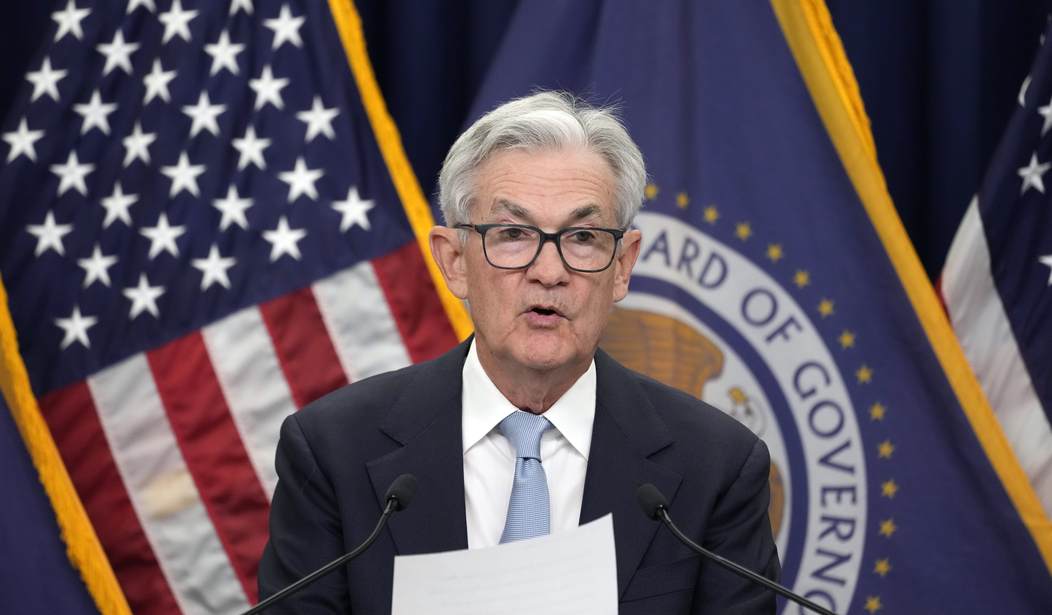I have heard some people say that the Federal Reserve has a credibility problem. The agency missed the most significant inflation spike since the 1980s, was slow to start rolling back pandemic policies, and failed to spot the risks that some banks, such as Silicon Valley Bank (SVB), were facing. Instead of instilling confidence and stability, the Fed's policy communication has, at times, been so unclear and confused that it has only served to exacerbate market volatility.
Credibility is a big enough problem, but unfortunately, the Fed's issues go beyond that. The Fed as an institution, along with its policies, seems to be a primary source of the economic instability America faces. In fact, David Stockman, Budget Director under President Ronald Reagan, calls the Fed "an SDI" -- a Systematically Dangerous Institution.
A responsible political class would pay more attention to an organization's failures and significantly reform it. Instead, politicians will likely do what they've done in the past: give the Fed even more power to regulate the economy in ways that will only cause further harm.
Back in 2007, with the approach of the Fed's 100th birthday, monetary economists George Selgin, William Lastrapes, and Lawrence H. White asked several vital questions: Has the Fed been a success or a failure? And does its track record merit celebration, or should Congress consider replacing it with something else? "The broad conclusions we reach based upon that research," they found, "are that the full Fed period has been characterized by more, rather than fewer, symptoms of monetary and macroeconomic instability than the decades leading to the Fed's establishment."
Congress, journalists, and Fed economists ignored their conclusions, and the Fed continued its rise, only this time with steroids in its veins. My colleague Thomas Hoenig, formerly of the Fed and the FDIC, recently looked at many of the Fed's policy changes since the mid-1990s. He finds that these changes increased the Fed's intrusions into our economy, not infrequently through regulatory overreach, causing severe distortions, bubbles, and other ills.
Recommended
The rot started with the adoption of a new policy framework under Chair Alan Greenspan that allowed the Fed to start manipulating both the price and quantity of money to seek better outcomes for economic growth and employment. After Greenspan, Fed chair after Fed chair expanded the framework further and further, going from a zero-interest rate policy for extended periods of time to the unrestricted creation of money through the direct purchase of securities, or "quantitative easing," and topped it off with growing purchases of lots of government debt. This, paired with unprecedented pandemic spending (without much attempt to roll it back after the emergency) helped lead us to where we are today, seen most noticeably through painfully high levels of inflation.
As part of its evolution, the Fed's focus has expanded beyond traditional price stability to include national financial stability and full employment. From stress tests and bailouts to price floors for corporate bond prices, the Fed grows more fingers with each passing month and sticks them into everything, everywhere, all the time.
The problem is that these interventions create the wrong incentives for banks and other corporations. They also create wrong incentives for Uncle Sam, who now believes he owns the printing press and can borrow as much as he pleases without repaying in a severe way. In addition, who is supervising the regulators? They missed the subprime-mortgage risks in 2008, the risks from stimulus spending in 2020, the inflation of 2021, and the SVB interest risk of 2022.
Maybe this pathetic performance is because the Fed began measuring only inflation in the prices of goods and services, ignoring other vital assets -- hence not counting as inflation the obvious asset bubbles of the last 15 years. Maybe it's because Fed officials are distracted by how they'll fight climate change while also delivering "inclusive growth." Or it could be that pressure from Wall Street and the White House around raising interest rates diminished their will to fight inflation.
Listening to officials and investors, you would think the Fed recently raised rates to unprecedented levels. Now, considering the interest rate risks facing some banks, some would like the Fed to keep doing so. While it is true that the Fed finds itself in a self-inflicted and challenging situation, the inflation-adjusted Fed funds rate remains negative, likely meaning the agency remains behind in the battle against the inflation beast it helped create.
Something isn't working. It's time to take a step back. Instead of planning some more regulations, we should look at the regulators.
Veronique de Rugy is the George Gibbs Chair in Political Economy and a senior research fellow at the Mercatus Center at George Mason University. To find out more about Veronique de Rugy and read features by other Creators Syndicate writers and cartoonists, visit the Creators Syndicate webpage at www.creators.com.

























Join the conversation as a VIP Member